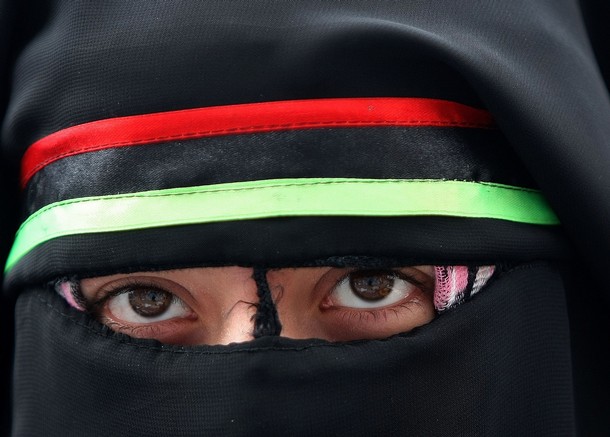
From Joshua Muravchik, World Affairs Journal: NATO’s deployment of air power against Muammar el-Qaddafi’s forces in Libya has been called—by some with hope, by others with alarm—the first exercise of the “Responsibility to Protect.” This new principle, which calls for international military action against “genocide, war crimes, ethnic cleansing and crimes against humanity,” was endorsed at the 2005 “high- level plenary meeting” of the UN General Assembly. It is so contemporary that it has been given a textable, Tweetable acronym—R2P. . . .
Does the UN Security Council’s authorization of NATO’s air campaign over Libya give grounds for revising this assessment? Does it establish a precedent that is likely to be followed by other life-saving interventions under UN aegis? The answer is no. The cardinal feature of the Libyan episode is that Qaddafi is a nut job who has alienated almost all governments except a few in Africa that he has bribed but that wield little clout.
The clearest measure of Qaddafi’s extraordinary isolation was the unprecedented resolution of the Arab League endorsing intervention in Libya, which paved the way for the Security Council’s vote. But when Syrian dictator Bashar al-Assad, no less a tyrant than Qaddafi, sent tanks and snipers into cities to mow down hundreds of peaceful demonstrators, the Arab League endorsed his action and the Security Council refused to pass so much as a resolution offering mere verbal condemnation.
It is hard to think of regimes as friendless as Qaddafi’s. Perhaps that of North Korea, but since it has nuclear bombs and an ally in Beijing, no action is contemplated even though the Kims have far exceeded Qaddafi in abusing their own subjects. The military junta that rules Burma has been widely criticized, but its fellow members of ASEAN, the Association of Southeast Asian Nations, generally coddle it, and military intervention was never considered when it slaughtered Buddhist monks marching peacefully in 2007.
In short, the Libyan case will prove no more of a precedent than the Security Council’s authorization of the use of force against North Korea in 1950, thanks to an ill-conceived boycott by the Soviet delegate who thus was unable to cast a veto. The UN cover was handy, but the United States would have fought to defend South Korea regardless, probably joined by the same collection of allies.
R2P at best will be a flawed principle of moral action because it cannot be applied even-handedly. No matter what the regime in Beijing, for example, does to its own citizens, the use of outside military force to protect them is unimaginable. Who will invade China? Nonetheless, for this principle to deserve to be taken seriously, it should be applied as uniformly as possible. The situation in Syria is not the same as in Libya: for one thing, the Syrian people have not called for outside armed help. But if Assad goes on a mass killing spree (as his father did in the city of Hamma in 1982) and the Syrian dissidents do call for outside help, then what? It is likely that the Obama administration would shed its perverse solicitude for that regime. But it is inconceivable that the UN—i.e., Moscow and Beijing—would.
The world has mostly enjoyed peace since 1945, but that owes nothing to the UN and everything to American power, exercised mostly in the form of guarantees to Japan, NATO, and other allies, rather than in shooting wars. In this era when violence within states is far more common than between them, cases of extreme abuse will sometimes cry out for outside intervention. But the traditional doctrine of humanitarian intervention, invoked by the United States and other democracies at their own discretion, is likely to offer a more usable basis for such action than the shiny new version called R2P, which places all authority in the paralytic hands of the United Nations Security Council.
Joshua Muravchik is a fellow at the Foreign Policy Institute at Johns Hopkins University’s School of Advanced International Studies. His upcoming book, How the World Turned Against Israel, will come out next year. (photo: Getty)
Image: getty%204%2028%2011%20Libya%20headband.jpg

